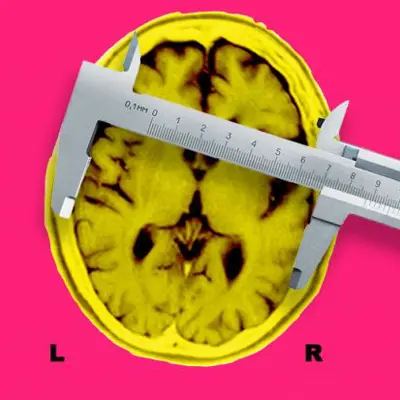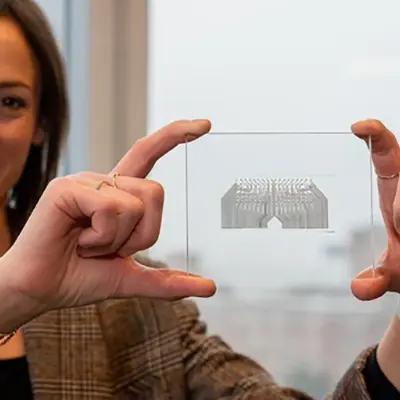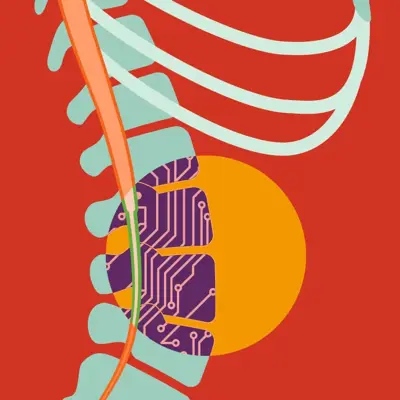Our goal
To unite the frontiers of engineered biology + hardware to treat many of the complex and devastating brain disorders affecting individuals and communities worldwide.
Neurological and neuropsychiatric disorders have enormous social and economic impacts. In the UK, one in six people has at least one neurological condition, with a cost to the NHS of £4.4 billion per year. These disorders go far beyond issues with movement and motor skills; they include Alzheimer’s, epilepsy, addiction, and depression. Many of these are neural circuit-level disorders, or problems with the ‘wiring’ of the brain, but current technologies lack the requisite precision and most are highly invasive.
We're seeking to develop next-generation precision neurotechnologies that can interface with the human brain at the circuit level, with cell type specificity across distributed brain regions. Armed with a deeper understanding of the brain today than ever before, we can leverage advances in brain-computer interfaces, AI, computational power, and gene therapies to achieve more precise and effective treatments for brain disorders. This will unlock the full potential of neurotechnology, alleviate bottlenecks, and move closer to a world in which personalised brain health care is available to everyone.
Pillars
This programme is split into four pillars, each with its own distinct objectives.
Non-invasive Interfaces
Developing cutting-edge technologies to read and modulate brain activity through electrical and acoustic fields, without direct brain contact.
Remote Interfaces
Enhancing the interaction of external fields with the brain, either via biological modification of the brain or microscopic brain implants.
Biological Interfaces
Pioneering the use of engineered cells as 'living' interfaces to repair damaged neural pathways and develop innovative approaches for long-term, circuit-level brain interfacing.
Future Adoption
Exploring how neurotechnologies can be designed inclusively, recognising the importance of engaging clinicians and people with lived experiences of brain disorders for greater, more equitable adoption of future tech.
Explore the funded projects
We're funding 19 teams with expertise across a myriad of disciplines and a strong institutional mix, spanning academia, non-profit R&D organisations, and startups. This portfolio of teams cuts across four workstreams: non-invasive interfaces, remote interfaces, biological interfaces, and future adoption of novel neurotechnologies.
Meet the programme team
Our Programme Directors are supported by a core team that provides a blend of operational coordination and highly specialised technical expertise.

Jacques Carolan
Programme Director
Jacques is an applied physicist and neuroscientist. Prior to joining ARIA as a founding Programme Director, he was a Discovery Fellow at UCL and a Marie Skłodowska-Curie Fellow at MIT. Jacques’ work involves applying the principles of physics and engineering to create next-generation, scalable tools that aim to radically change our understanding of the brain and ultimately be used to repair it.

Anusha Rajamani
Programme Specialist
Anusha has a background in international development and public health, with experience managing complex programmes across government and multilateral sectors. She has worked on global health, climate, and health systems initiatives internationally and offers expertise in strategy, partnerships, and programme delivery. Anusha supports ARIA as an Operating Partner from Pace.

Gillian Koehl
Technical Specialist
Gillian, a bioengineer, is passionate about advancing health through neurotechnology. She brings expertise in neuromodulation product development and biomaterials from her time at Blackrock Neurotechnology and Imperial College London.
Featured insights

Equality + diversity in neuroscience
Mahnaz Arvaneh from the University of Sheffield is leading the project, Addressing Inequities and Adoption Disparities in Neurotechnology Among Marginalised Groups. Her team’s work tackles a critical issue: without diversity in research data and participation, our understanding of the brain remains incomplete, and new technologies risk reinforcing existing health inequities.
To raise awareness among researchers and the public, the project team created a short film in collaboration with members of the ISRAAC Community Centre.
Sign up for updates
Stay up-to-date on our opportunity spaces and programmes, be the first to know about our funding calls and get the latest news from ARIA.





